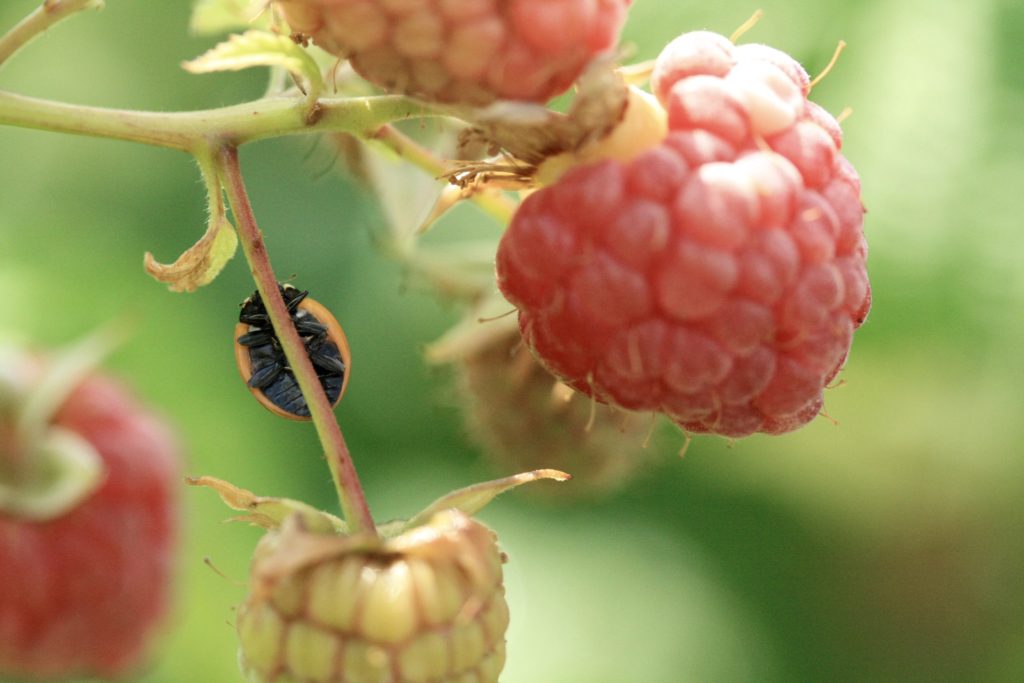Les Nourritures Terrestres : Bayer-Monsanto deal

Last night, I was scrolling through the Le Monde website when suddenly an article popped into my page: “les chefs francais ne digerent pas la fusion Monsanto Bayer”. To sum it up quickly, a panel of famous french chefs, bloggers and gastronomy critics wrote an open letter to denounce the Monsanto-Bayer merger and warn about possible implication on product quality. In the midst of the presidential election, such crucial information has gone relatively unnoticed.
I thus decided to look deeper into it in order to provide you, fellow readers, key elements about this deal. I do completely realize that compared to a chocolate brownie recipe or a restaurant review this article appears far less appealing. Still, you should read it in order to understand crucial changes going on in the food business, as the new Monsanto Bayer deal could have impact on your everyday life. Also, as it is 20 days until Thanksgiving, reading this article will allow you to impress your dear Aunt Georgia and make your parents proud by simply putting the topic on the Thanksgiving table.
As you may or may not know, Bayer, a major German pharmaceutical and chemical company, announced it would buy out Monsanto for around 57 million dollars. Monsanto, is an American agrochemical firm, famously known for marketing and selling GMOs and the Roundup pesticide.
Why did Bayer decide to do merge with Monsanto?
1) Monsanto-Bayer will be able to sell full-range services to growers from crops and fertilizers to designed consultancy and auditing services.
2) The two firms are extremely compatible. Monsanto is a seed producer largely implanted in the American and African continent, while Bayer is one of the major players in the European and Asian agrochemical markets.
3) In a competitive and innovative sector, Bayer will get its hands on Monsanto patent and gain considerable industrial knowledge.
4) Similar mergers have already happened on the market ( Dupont + Dow Chemical for instance). By merging with Monsanto, Bayer’s size and power would become similar to those of its competitors. It would be able to scale effectively, opening a wide array of possibilities to launch new products.
Still, this acquisition raises many issues. The news of the deal has triggered thunderous contestations from people ranging from environnemental activists to french chefs. The chefs argue that it will create an agrochemical company monster, capable of dominating the whole supply food chain. They fear the group will be able to control the whole process from field to plate, by selling manufactured crops, thus eradicating cultural and geographical differences and specificities. Due to the unprecedented weight and power Monsanto-Bayer might have on the market, the growers would loose their latitude and their capacity to choose their own seeds. For the chefs, this would result in less product variety and a decrease of their freedom to select the very best products, stemming their creativity and their talents.
Other source of worry concerns food quality and health impacts. In the chemical industry, a size increase entails a gain of power, clout and strength. Political power and economic power seem to be correlated. Not only would the new firm be able to impose its dominance on small growers, but Monsanto-Bayer would also have the means to impose its norms and standards. Recently, some scientists were able to find traces of pesticide in non-organic wheat crops. What are the possible repercussions on the human health? Is this dangerous? What about biodiversity? Would Bayer able to use its reputation to impose Monsanto crops in Europe (which today are forbidden)? Such questions are still unanswered.
The aggregation of food product industry is also controversial. As of today, 6 companies, namely Syngenta, Bayer, BASF , Dow Chemical Monsanto and Dupont control 60% of the market, and this number could shrink to four following the different merges occurring in the agrochemical industry. If only a few companies have a hold on the market, those would be able to fully control basic foodstuffs prices, weakening and impoverishing smallest growers and part of the population.
The deal has not closed yet. The US Department of Justice and the European Union could halt the deal if they consider it noncompliant with anti-trust regulation.
To know more about the issue you can « Lettre ouverte contre l’invasion de l’agrochimie dans nos assiettes », by Olivier Roellinger
-Aurore Gugliemi